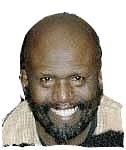Notes from his presentation on the elections at the Washington Peace Center, Thursday, March 30, 2006.
In 1975 I became interested in Haiti in the course of my intensive support work for South Africa and Namibia. In the course of that work, I met Howard University students from Haiti. Talking to them, I became interested in the problems of that country.
In 1995, I was part of a U.S. organization that was invited down to Haiti by its largest peasant league. By that time, my Haitian friends whom I had met in the 1970s had returned to Haiti to work in the movement for change. I tried to locate them.
In 1995, Haiti was preparing for elections after the return of the elected president, Jean-Bertrand Aristide, by U.S. troops in 1994. The Haitians asked us to act as international observers for the elections, and I returned in June 1995 to observe. The president of the electoral commission said to me that since we know and trust you, we would like you to observe right here in the CEP headquarters.
At that time, all members of the CEP were under threat and had bodyguards. At CEP headquarters, there were guards with shotguns. I was wary, but as a former Black Panther I had got used to the sight of guns.
At 4 a.m. on election day I was awakened and asked to observe a specific event. I would learn something from this event.
The head of the departmental electoral office (BED) for the Department of the Ouest, in which Port-au-Prince is located, had earlier reported to the CEP that he had got out all the ballots to the polling stations by 10:00 p.m. the night before. Now he called to say he had not got them out and needed fifteen vehicles from the CEP to get them out. We went to the BED. The president of the BED had his security, and the CEP members took theirs with them. There was an argument. Voices were raised, which in Haiti does not necessarily mean there will be violence. The CEP member wanted the BED president to sign a paper requesting the vehicles. The argument went back and forth. Finally the CEP member pulled out his nine-millimeter pistol and banged it on the table for emphasis. The BED president signed. On leaving the building, I made sure I walked ahead so that if there were any shooting, I would not be in the way.
From the incident, the BED president was able to generate newspaper articles alleging that the CEP was late getting the ballots out. From this, I began to see how the game was played.
Because polls opened late, they would close late. Then, as last month, the poll workers were very young. Their average age is in the twenties. They are very focused and take great pains to count the ballots properly. In Haiti, they put the candidates’ picture on the ballot and the party symbol, as half the voters cannot read. This makes for a large ballot because thirty or forty candidates are vying for the same position. It is a painstaking process. Many polls had no electricity. After 6 p.m. it became pitch dark. They were counting the ballots by candlelight. They were looking at each ballot and recording it.
In the four elections I have observed in Haiti, it was the same. Poll workers are there at three or four o’clock in the morning. They are supposed to count each and every blank ballot that is delivered, so that there will be an accurate count of how many ballots they started with, how many were voted, and how many were returned unused. They count them twice to be sure.
So, these young poll workers begin in the dead of night, work through the next day, and frequently way into the next night and morning completing the count. Often, when I hear quick accusations of cheating, I remember how dedicated these workers are.
This time they combined several precincts into one voting station. People had to walk long distances. They had laminated voting cards with their pictures. They would present their cards at the table. The electoral workers had printouts with copies at table. They then keep the card, the person is given ballots. The area is secluded but not terribly secret. The ballot is put in transparent plastic box. Ink is put on their thumb. They are given back their voter’s card.



